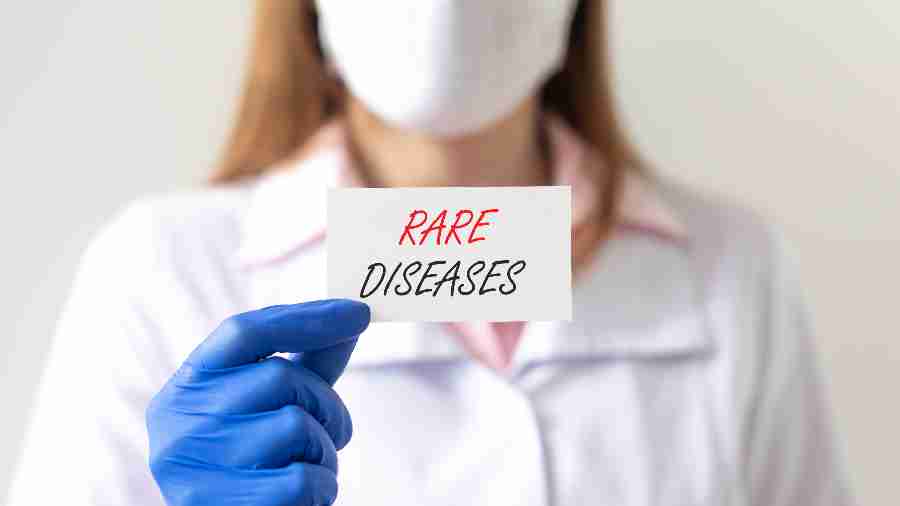Parents of children suffering from rare diseases called for greater government support for early detection and treatment at a meeting held to raise awareness about such illnesses on Tuesday.
The mother of a 12-year-old girl who suffers from spinal muscular atrophy said the treatment cost for children suffering from rare diseases was very high. The Centre is supposed to give a one-time grant of Rs 50 lakh to those detected with rare diseases, but her child was yet to receive the grant.
The parents demanded that the facilities for the detection of rare diseases should be more widely available so there could be an early intervention that can expand their lifespan and improve their quality of life.
The parents also spoke about the difficulties in raising such a child — an insensitive society, public spaces and public transport that are never designed thinking about them and uncaring workplaces that do not allow additional time for parents to care for their kids.
Government support
“Treatment of rare diseases is a very costly affair. Without support from the government, it is very difficult to carry on with the treatment because many of the diseases require lifelong treatment,” said Moumita Ghosh, whose 12-year-old daughter suffers from spinal muscular atrophy.
The Union health ministry through an office memorandum in May 2022 raised the one-time financial support for each patient under its National Policy for Rare Diseases 2021 to Rs 50 lakh from Rs 20 lakh. Ghosh said that though her daughter’s name was there on the list of patients with rare diseases, they had yet to receive any financial support.
There are between 7,000 and 8,000 rare diseases, according to the National Policy for Rare Diseases 2021, prepared by the Union ministry of health and family welfare.
The World Health Organization has defined a rare disease as an often debilitating lifelong disease or disorder condition with a prevalence of 1 or less per 1,000 population, the national policy mentions.
“There should be more efforts by the governments to inform people that children suffering from rare diseases are eligible for financial support. Many are not yet aware,” said Ghosh.
Early detection
Dipanjana Datta, a medical geneticist and the state coordinator of the Organisation for Rare Diseases India, said early detection of rare diseases should be a focus area of the government. Early detection will lead to early onset of treatment and reduce the risks of another child being born to the same parents with the same disorder. “There are parents with more than one child suffering from a rare disease,” she said.
Inaccessibility
The parents said the governments should be sensitive enough to design public spaces and public transport so that children suffering from rare diseases, many of whom are wheelchair-bound, can access public spaces and use public transport. “I know my son may not live for long, but I want him to live with happiness and enjoy some of the pleasures of life. But where is that scope?” asked Dilip Singh, whose 10-year-old son suffers from Duchenne muscular dystrophy.
Singh said he and his wife have to hire a taxi every time their son steps out of home. Buses, Metro stations and even places for recreation still lack basic facilities like ramps for wheelchairs. “Sometimes I have to lift my son on my shoulders to enter a place,” he said.
A life lesson
Baninder Singh, whose four-year-old son is suffering from Niemann-Pick disease type C, which has taken away all mobility of the child’s upper and lower limbs, said his son cannot even move an ant sitting on his face. “My son has taught me a lesson. Thank God for whatever you have in your life, for being able to walk, eat on your own and move around freely. My son cannot do any of these,” he said.
